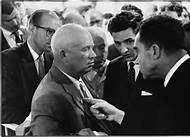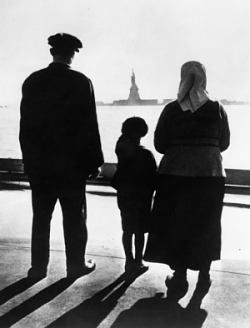President Obama is scheduled to return home today from his trip to the Middle East. The schedule for his trip fits on one sheet of paper. Behind the scenes, complex planning bolsters each phase, as American embassy and consulate staffs direct every detail.
I was never in on a visit from a trip by the U.S. president when I worked at U.S. diplomatic posts overseas, but I remember one by the United States First Lady and several by the Secretary of State. Embassy officers planned official meetings, visits to tourism sites, and gifts to be given. “Control” officers were assigned each major player to guide their every move. You didn’t want an official lost while trying to find the way to a restroom. Security, drivers, and routes had to be plotted in the minutest detail, not to mention interpreters for different languages.
 Some of the preparation for a high-level visit made its way into my novel Searching for Home, the story of Hannah and Patrick’s journey toward a deeper relationship while a part of embassy communities. Patrick, a political officer in charge of the visit of a high level visitor, bemoans the visitor’s choice of the time to visit, during a local holiday.
Some of the preparation for a high-level visit made its way into my novel Searching for Home, the story of Hannah and Patrick’s journey toward a deeper relationship while a part of embassy communities. Patrick, a political officer in charge of the visit of a high level visitor, bemoans the visitor’s choice of the time to visit, during a local holiday.
“That’s the way it usually is. They come on our holidays, not theirs.”
Hannah, his new wife, recently arrived to embassy life, asks what’s involved.
“We have to arrange meetings. Photo ops. Every minute, all the logistics, even the drivers have to be plotted like a movie spectacular. Prepare briefings about everybody she’ll meet. Do up talking points. Write up her speeches. . . . We’re thinking about a trip to one of the tourist hotels on the edge of the Sahara. Maybe take her to Kairouan to look at the rugs they weave there.”
 Despite the work, high level visits allow face-to-face meetings in local space that can lead to better understanding between nations. The “kitchen” debate between President Richard Nixon and Soviet Premier Nikita Krushchev at the American National Exhibition in Moscow in July 1959 remains a classic to this day.
Despite the work, high level visits allow face-to-face meetings in local space that can lead to better understanding between nations. The “kitchen” debate between President Richard Nixon and Soviet Premier Nikita Krushchev at the American National Exhibition in Moscow in July 1959 remains a classic to this day.
“The shrewd Khrushchev came away from his personal duel of words with Nixon persuaded that the advocate of capitalism was not just tough-minded but strong-willed,” wrote William Safire in The New York Times.


 As a consular officer working for the U.S. State Department, I interviewed foreign nationals for both temporary visas and visas for permanent residence in the United States. Interviews for legal immigration were rewarding, often dealing with those who were elated at reaching their dream of living in the United States. These immigrants often had family who had immigrated to the United States before them. Others had earned their visas because their job skills were needed by an American employer.
As a consular officer working for the U.S. State Department, I interviewed foreign nationals for both temporary visas and visas for permanent residence in the United States. Interviews for legal immigration were rewarding, often dealing with those who were elated at reaching their dream of living in the United States. These immigrants often had family who had immigrated to the United States before them. Others had earned their visas because their job skills were needed by an American employer.